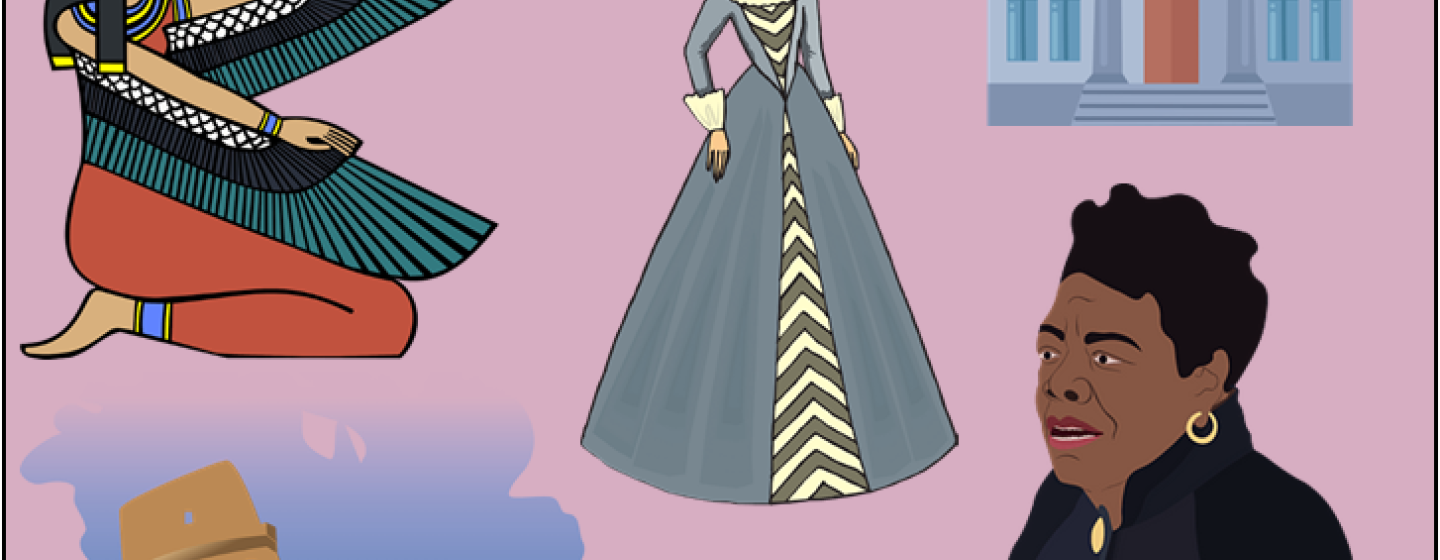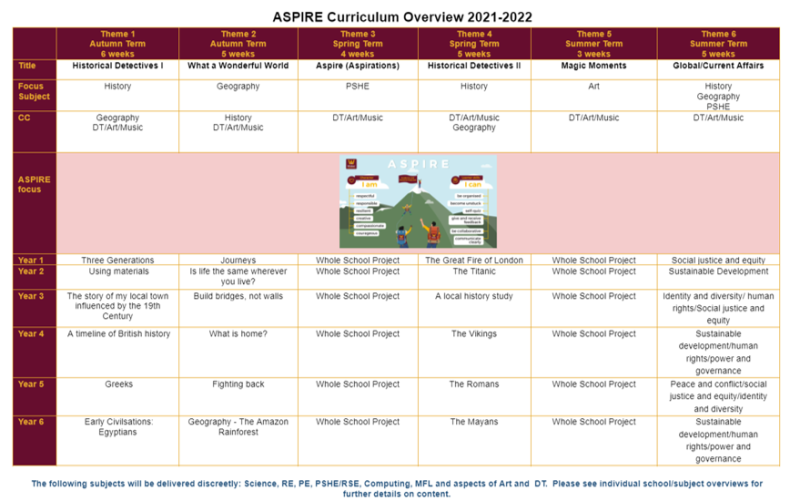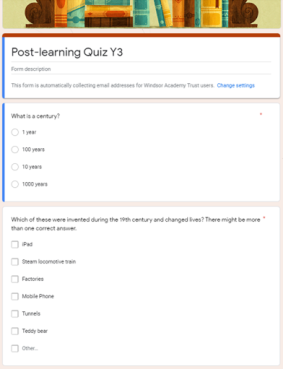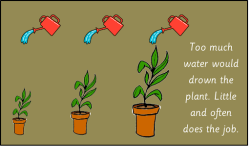
History
Intent:
At Goldsmith, we are historians...
At Goldsmith, it is our aim for pupils to aspire to be the best that they can be and become curious and self-quizzing historians. We implement this through our bespoke curriculum meeting and exceeding the aims of the 2014 National Curriculum. We offer lessons which are engaging, knowledge based and skills driven whilst maintaining a practical and enquiry based approach. The planning follows a progressive approach from theme to theme and also year to year.
Implementation:
What is our curriculum?
We follow a half-termly programme of study throughout our school with an overarching theme, that is then split into different topics for each of the year groups.

EYFS: ‘Understanding the World’ maps out the goals for EYFS. These goals are covered thematically and develop children’s understanding of past and present; people, culture and communities.
KS1: Historical Detectives 1 (our whole school theme title) considers three generations in Year 1 and the race to space in Year 2. Historical Detectives 2 investigates the Great Fire of London in Year 1 and the demise of the Titanic in Year 2.
KS2: A Historical Detectives 1 considers Victorian Britain in Year 3, the Stone Age and Iron Age in Year 4, the Ancient Greeks in Year 5 and the Ancient Egyptians in Year 6.Historical Detectives 2 in the spring term, investigates the Tudors in Year 3, the Vikings in Year 4, the Romans in Year 5 and the Maya in Year 6.
When is it taught?
Theme is taught to the value of 3 afternoon sessions per week (afternoons are split into 2 main sessions) with other cross-curricular opportunities being planned for within this time. History will be taught within this time-frame.
How is it taught?
EYFS - History content is covered thematically and taught through direct teaching, continuous provision and theme days which could include educational visits.
KS1 & KS2 - History is taught on rotation through our Theme lessons. We use the WAT ASPIRE values in each lesson encouraging the children to actively and openly use the language and skills embedded in this. Most lessons are taught following a model, practise and independent learning approach. Some sessions are research based, using digital technology and the library, to self-study through facilitation.
Impact:
 How is impact measured?
How is impact measured?
Teachers assess during lessons through AfL and during and after lessons as part of our #feedforward policy. At the start of each unit of work, a pre learning quiz is conducted. At the end of the theme children complete a post learning quiz and a Key Assessment Task (KAT).
How do we know children have made progress?
The knowledge performance indicator can be tracked through the learning quizzes assessed at the beginning of a unit of work and at the end of each phase of learning together with the KAT task. Evidence would also be found in the children’s books and clearly communicated through pupil voice conversations.
How do we challenge and support lack of progress?
Following the quizzes, any gaps in knowledge can be identified and implemented during smart starts, morning activities or research based home learning (in KS2).
How are we inclusive?
 Our ‘hands on’ history approach to the curriculum allows for all children to access the material required within each lesson. Teachers use scaffolds in written work to ensure accurate recording of data and facts and apps on the iPads to ensure written material is read to a child if needed. An accurate assessment of a child’s ability in history should not be limited to their written recordings and compensation should be given for verbal conversations.
Our ‘hands on’ history approach to the curriculum allows for all children to access the material required within each lesson. Teachers use scaffolds in written work to ensure accurate recording of data and facts and apps on the iPads to ensure written material is read to a child if needed. An accurate assessment of a child’s ability in history should not be limited to their written recordings and compensation should be given for verbal conversations.


